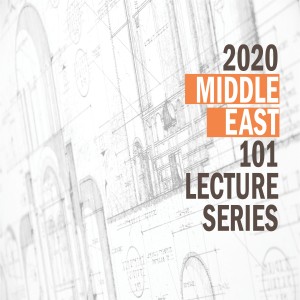Episodes

Monday Sep 14, 2020
Monday Sep 14, 2020
The United States became a strategic player in the Middle East only in the second half of the 1950s as its reliance on Persian Gulf oil increased and it realized that it could no longer rely on Britain to protect its interests in the region. This pattern – a combination of interests and balance of power calculations – would shape the evolution of American policies in the Middle East ever since. Even America’s most substantial ties in the region – its relations with Israel – became “special” only after Israel was able to “prove” it was a strategic asset.
Notably, the United States “won” the Cold War in the Middle East early on (in the 1970s), but went on to pay a premium price in terms of strategic entrapments (the energy crisis, Iran hostage crisis, etc.). Following the end of the Cold War, the Middle East was yet another arena for demonstrating America’s “hegemonic moment”, but 9/11 reshaped its outlook. For the United States, regional under-development became a threat to national security and it sought to “fix” the Middle East. However, the huge toll and poor track record – combined with the 2008 economic crisis – decreased America’s strategic ambitions for the region, as it sought to divert attention to Asia and contend with the rise of an increasingly assertive, and now aggressive, China.
No longer dependent on Middle East oil and rid of grand ambitions of transforming the region, America’s strategic footprint is diminishing, and its allies and adversaries alike are adjusting their policies accordingly. Nevertheless, two main factors will probably keep the U.S. regionally engaged, at least to some extent: (a) the growing presence and influence of its great power competitors – China and Russia – across the region; and (b) the enduring geopolitical relevance of the Middle East on the periphery of the Indo-Pacific (energy and maritime security; source of terror; nuclear proliferation). A combination of these factors might actually rekindle, even if reluctantly, America’s strategic appetite in the Middle East before too long.


No comments yet. Be the first to say something!